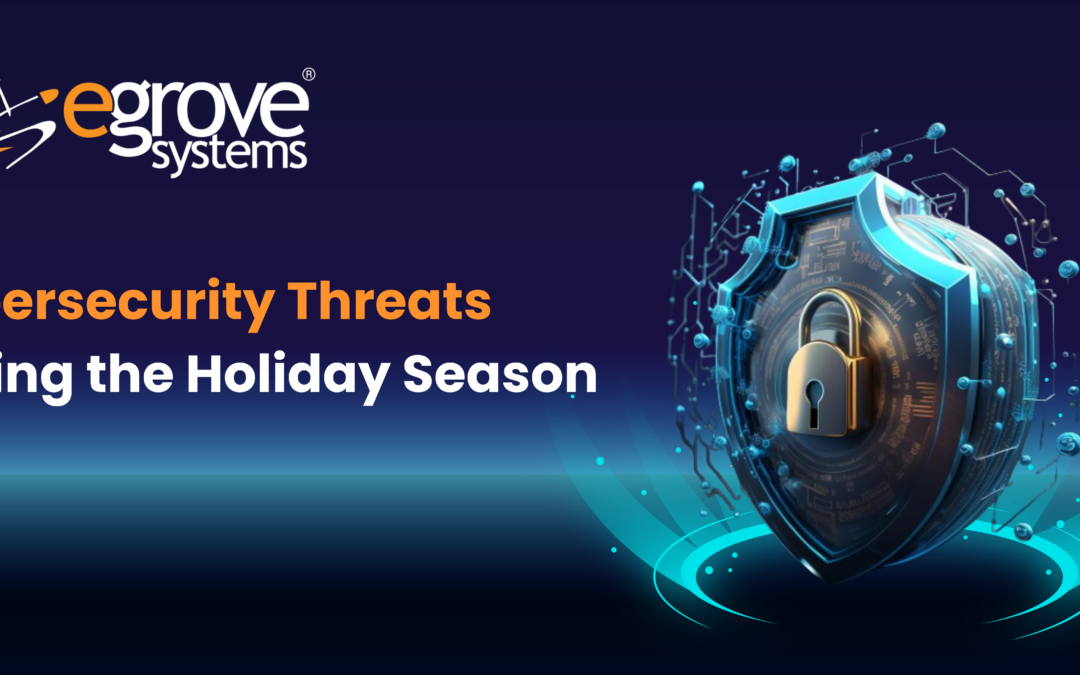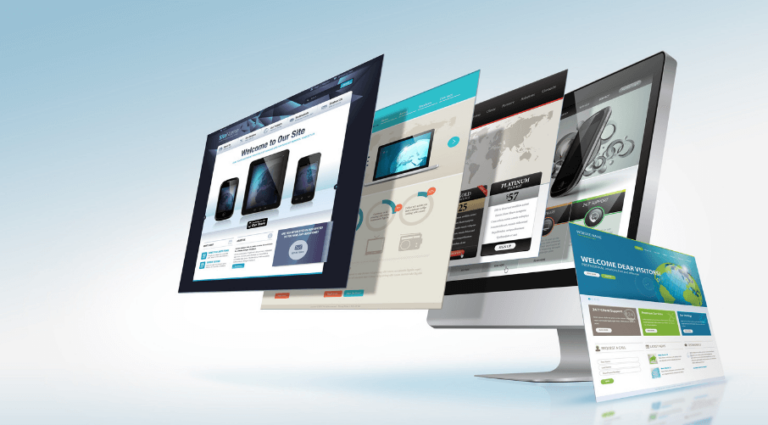Cybersecurity Threats During the Holiday Season
The holiday is a lucrative period for businesses. While the number of conversions and sales increase and your bottom line improves dramatically, the risk of cyber threats spikes during this time. To meet the growing demand for your products, you might tap into the technology, workers, and other resources you haven’t used for years. This comes with a greater risk of security threats. While retailers are busy planning promotional activities to grow their sales, hackers use seasonal distractions to launch malware and ransomware attacks.
Every business, irrespective of its size and nature, is at risk of cybersecurity threats. With Christmas and New Year around the corner, retailers must take their security protocols up a notch to ensure safe business operations. Let’s check out some common cyber attacks that have been reported in the last few years around this time and tips for mitigating the risks.
Why Do Cyber Attacks Increase During Holidays?
Security is often neglected during the Black Friday sale, Christmas, and New Year. Retailers and employees are busy planning promotional activities for the business. People working in the IT department might take time off during this time, putting your business and its resources at risk of cyber attack. It’s normal for a business to put security at the end of its priority list.
After all, the holiday is the time to grow your sales and focus on building a huge customer base. You may not have the time to check the latest compliance regulations. However, cyber threats are more common during holidays than at any time of the year. And this year is no different. While retailers are busy serving their customers and creating marketing campaigns to boost sales, hackers are finding new opportunities to launch a cyber attack. Ransomware, malware, and phishing attacks are the most common of all cyber threats. And with your employees working remotely or taking a few days off, the risk increases.
An attacker can target your system by launching malicious software that helps them steal customers’ confidential data or they can target your customers directly by sending them promotional offers and lucrative deals using your business’ name and credentials.
Common Cyber Threats for Businesses
It’s not only the retailers who are at increased risk of cybersecurity threats but everyone involved in the process, including IT service providers, transport and logistics department, manufacturers, and communication providers are a few organizations responsible for facilitating a seamless shopping experience during the holidays. Nearly every organization uses technology to conduct manufacturing and sales operations. Here are some common threats that can affect retailers this year.
Ransomware
Ransomware is one of the biggest cybersecurity threats for all sizes of businesses. The risk is specifically higher during peak business hours. Malicious actors wait for this time to launch a ransomware attack, as system downtime or any type of cyber attack that stops business function is the last thing a retailer wants during the holidays. They will fulfill the ransom demand to restore their business function.
The holiday is the best time for a malicious actor to launch a cyber attack, as most retail stores are understaffed around this time, and with increased traffic to your store, there’s a risk of an attacker deploying malware on your system. Resource-constrained retailers would easily pay the ransom, making it easier and more lucrative for an attacker to target businesses in November and December.
Stealing Card Information
EMV chips and encrypted virtual terminals have improved security for retailers, but do they offer complete protection from cyber threats? Malicious actors are always on the lookout for opportunities to steal credit/debit card information and misuse it.
According to a Verizon report, 83% of cyber breaches were conducted by external parties and 37% of them accounted for stolen credit card information. Hackers no longer steal credit cards, as the latest POS units are equipped with cutting-edge technology that declines a transaction if anything mismatches or the user fails to verify their identity.
So, they have shifted their focus to infecting the card processing page with malicious codes. The attackers collect customers’ credit card data, as soon as they insert the card into the POS system or swipe it. All this happens without any change to the website’s functionality. It’s difficult to detect a vulnerability in a POS system if everything is working normally. Sadly, the longer the system vulnerability goes undetected, the more damage it can cause to a business’s reputation and financial health.
Typosquatting
Typosquatting is another common cyber threat that is often reported during the holidays. A hacker can use a duplicate domain with typographical errors to get customers to enter their payment information on a malicious website. These small typo errors sometimes go unnoticed, usually around the busy season when customers are in a rush to complete the checkout process.
A hacker could use a URL that has spelling mistakes but looks like the original website. This cybersecurity threat is most commonly used to conduct phishing attacks, where a customer is forced to leak their sensitive card details and other confidential information to the attacker. They don’t take time to verify website details. These are more common during Black Friday, Cyber Monday, and other time-sensitive offers.
Phishing Attacks
Phishing attacks are a common cyber threat for small, mid, and large-sized organizations. It’s, however, more common during the holidays as people tend to receive tons of promotional emails. They are also highly likely to open them to check out the latest deals. A business can become a victim of a phishing attack if one of the members of the company clicks a malicious link or downloads an infected script on its system, which launches malware.
Increased Overall Vulnerability
Your staff knows the technical equipment, your resources, and the entire payment and shopping infrastructure. With more employees on leave during the holidays, your business will be exposed to an increased vulnerability. Not only because you are understaffed, but the key employees in your organization won’t be there to handle urgent technical issues, system downtime, and other cybersecurity threats. For instance, without an IT service department, it’s difficult to detect a vulnerability in your POS unit or malware that’s launched by an attacker to steal sensitive data.
Best Security Practices to Mitigate the Risk of Cyber Threats
Let’s check out a few best practices for retailers to mitigate the risk of cyber threats.
Keep Your System Up-to-date: As your business will most likely be understaffed during the holiday season, you must upgrade your software, hardware, and cloud-based solutions. Educate your employees about the risk of phishing attacks and how to avoid them. Watch out for suspicious behavior, such as users from international countries (where your business doesn’t operate) accessing your website.
Outsource Your IT Services: If your in-house IT team is on leave, outsource your IT help desk services to a third party on a contract basis. Cybersecurity risks are more prevalent during holidays. Since your IT group won’t be monitoring your POS and online shopping infrastructure, a cybercriminal could easily gain access to your system without your knowledge and keep stealing your customer’s sensitive data.
Focus on Compliance: PCI DSS compliance consists of the regulations you must follow to mitigate the risk of payment card data threats. It’s one of the most important pillars of improving your system’s security. Compliance is not a one-time process. You need to keep up-to-date with the latest PCI compliance standards to ensure your business’s safety.
Use Multi-Factor Authentication: MFA is a vital security tool for businesses operating online. If you have a team that works remotely, you must deploy multi-factor authentication to ensure that only authenticated users get access to your system. MFA offers protection against unauthorized access to your software solutions. You should also limit users’ access to your data. Follow the Role-Based Access Control system where users who need sensitive data for their job function can access it. If a user leaves your organization or an employee no longer needs access to the sensitive data, remove them from your system immediately.
Train Your Staff: A majority of data breaches occur because of employee negligence. Social engineering attacks target employees, who are likely to fall prey to the attackers and give them access to the company’s data unknowingly. Staff training is crucial to prevent social engineering attacks. Your employees must be able to differentiate between authentic and spam messages.
Bottom Line
The risk of payment system fraud is at its peak during the holiday season. If you haven’t already done anything for your system’s security for the holiday season, now is the time to focus on compliance, staff training, MFA, restricted data access, and IT service providers for improved security. Compliance might be a long process, but every step toward complying with the PCI DSS standards will make your business operations safer for you and your customers. It’s important to be aware of the cybersecurity risks that are likely to happen during holidays. Knowing your risks and taking steps to mitigate them are key to preventing cyber threats.







